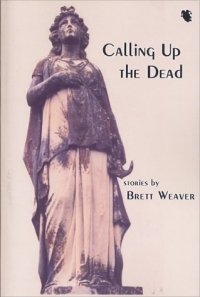Book DescriptionDeath, in most cases, provides writers with a convenient stopping point, a period after which readers can assume what they wish and the writer need not concern himself that their imaginations will, in any way, undermine that which has gone before: a character dies, and that is the end of it all. In "Calling Up the Dead," however, Brett Weaver has managed to make "death" a starting point, or, in some instances, to allow it to form a new beginning—after all, funerals are for the living and not the dead. In the title story, an officious, unpleasant woman, Miss Mith, is transformed into a likeable character who discovers her ability to love through the spirit of her deceased father whom she has reluctantly come home to bury. In "Three for Tango" it is the fear of death, and its slippery companion, old age, which allows the Argentinean professor to realize the true love he has for his wife, despite his indiscretions which he has, initially, deemed so necessary. Death, in these stories, is, as it should always be, more than a character; it not only plays roles, but draws the line between where actors may and may not work out their drama—it is the moment in time prior to which everyone must speak their part before the silent curtain of memory falls. Это и многое другое вы найдете в книге Calling Up the Dead (Brett E. Weaver)
Calling Up the Dead Brett E. Weaver
Подробная информация о книге «Calling Up the Dead Brett E. Weaver». Сайт не предоставляет возможности читать онлайн или скачать бесплатно книгу «Calling Up the Dead Brett E. Weaver»
